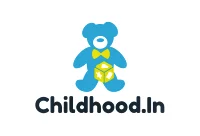Thanks to your little one’s 4 month old baby development milestones process, you must have noticed that she is so much different from the previous 4 to 8 weeks. Month 4 is an important milestone, as it is the ideal time for her to get introduced to learning.
In this article:
Physical Development Milestones
Cognitive Development Milestones
Social & Emotional Milestones
Touch & Smell Milestones
Visual Development
Sleep Milestones
Emerging Skills
Advanced Skills
What You Can Do As Parents?
When to Be Concerned?
Physical Development Milestones
- Able to reach objects and shuffle it between her hands.
- Her stomach has grown bigger and is therefore able to consume more milk in one go.
- Is able to roll over in an instant.
- Turns her head in different directions.
- Your baby will get her first teeth any time after three months. If you see red patches in her gums and she’s drooling a lot, that’s an indication that her first tooth, usually one of the bottom ones, is likely on its way soon.
- Can sit without support for short periods of time and even stand briefly without support.
Cognitive Development Milestones
- Unlike during the earlier months, she cries with different tones.
- Your baby will start making connections in the real world and can distinguish between objects, faces and emotions.
- Displays sadness more distinctly than before.
- Has an improved sense of memory and recall.
- Reacts and responds very spontaneously to different situations and emotions.
Social & Emotional Milestones
- Shows excitement when meeting babies of her age.
- Sucks her thumb often to self-soothe.
- May smile or laugh when you tickle her tummy or when you give her a piggyback ride.
Touch & Smell Milestones
Your baby will be absolutely fascinated by textures, be it crinkly, furry, soft or lumpy. This means she will explore almost everything with her mouth, be it your fingers, your hair, her toys or anything they can get their hands on.
Visual Development Milestones
She gets better at distinguishing between colours and shades. This four month baby milestone makes it a good time to introduce her to even more colourful toys and books.
Sleep Milestones
- Usually, babies at this age take a nap of 90 minutes or longer.
- She may sometimes get fussy during the evenings, especially around dusk time.
- Will go to bed at a regular time and will sleep about 14 hours every day on an average.
- Can go 8 hours every night without being fed, as her stomach has grown bigger and she can feed herself better in one go.
Emerging Skills
- Will recognise and respond to her name, sometimes with a smile.
- Follows moving objects closely.
- Will try to move her body around with her hands and knees when laid down on tummy. These are initial signs of her intention to get to a crawling position, which usually happens anytime from the 6th month.
Advanced Skills
- Communications skills will have improved to include cackles and grunts. These are her first signs of speech.
- Will be able to mimic your words better and more consistently than before.
What You Can Do as Parents?
- Give a variety of toys to let her explore the concept of cause and effect.
- Get her doze of scheduled vaccinations done.
- Keep your home clean to protect your baby’s immune system.
- Repeat the words every time she mimics them, as she is clearly enjoying and having fun doing that. These are moments to invest in as they can be the foundations on which she will develop her communication skills.
- As she may sometimes get fussy around dusk, give her a change of place taking her out in the open. It could be your balcony, terrace, a nearby park or anywhere under the open sky. There’s nothing like making her experience the outdoor breeze.
When to Be Concerned?
- Not showing interest in reaching out to her toys or playing with them.
- Does not babble or mimic even when you are playfully talking to her.
- Does not respond well to emotional cues.
- Does not react when others approach her.
Note: Each baby is different and therefore tends to grow at a different pace. Chances are that your little one may have crossed certain milestones already, or is probably a little behind on a few others, which is normal. If you still feel there is something of concern, do speak to your paediatrician/registered professional child healthcare provider.

